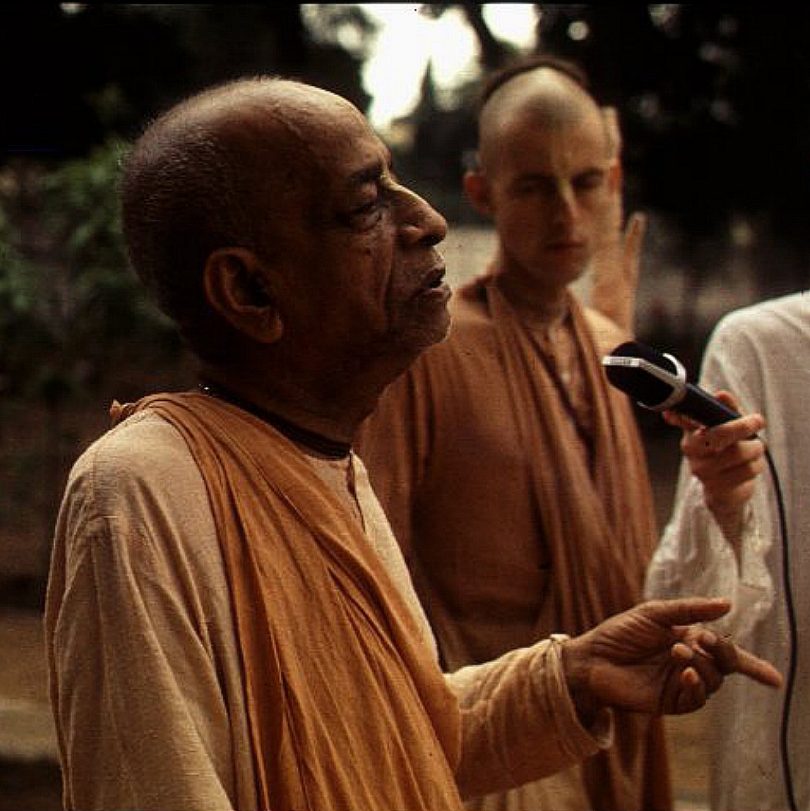Question: Part1: This is with regard to ‘disliking other devotees’ (referred to in a previous digest). Whilst I understand it is possible to forgive a person who has caused physical pain to another person, I have wondered for sometime about the following.
If someone claims to be a devotee (i.e. they carry out services in a number of ways, they chant and worship, are vegetarian, and have been born to parents who have been associated with ISKCON for many years) but they appear to lack compassion, what does this mean? If a person displays lack of compassion, are they actually a devotee?
Answer by Romapada Swami:
Compassion is one of the qualities of a devotee. Scriptures identify 26 qualities of a pure devotee. Of these twenty-six, taking exclusive shelter of Krishna is the primary quality (Krishna-eka-sharanam). The others are said to be secondary or marginal qualities. They are not unimportant, but one who is fixed in the primary symptom gradually develops all the other qualities in due course of time, due to the mercy of Krishna upon such a devotee.
Someone who takes to Krishna consciousness may not initially exhibit the finer qualities of a devotee, due to their past background. But if they are sincerely taking shelter of the process of devotional service with an earnest desire to please Krishna, it is only a matter of time before they develop all other qualities. Krishna Himself commands that they are definitely to be considered as saintly persons and respected as such, overlooking their defects, because they are properly situated in their determination’. (Bg. 9.30,31)
This does not mean that sincere devotee will be complacent or slack in cultivating these qualities, for example considering their character (compassion etc.) is irrelevant. Mechanical execution of services or a complacent attitute is NOT the disposition of a Krishna-eka-sharana bhakta.
In contrast, one may apparently exhibit many good qualities, much as in the case of many noble persons in this world, but lacking devotion and surrender to Krishna, their goodness is insubstantial and fluctuates according to the dictates of their mind and the modes of nature. For instance, Karna and Jarasandha were famous for being very charitably disposed, but because of their aversion to Krishna they often yielded to ungodly and atrocious activities.
Part 2) Are the above `devotional’ activities more exalted than compassion? Would such a person be more favorable to Krishna than someone who reads ISKCON literature, but knows less mantras, chants less, and drinks alcohol for example?
Answer by Romapada Swami:
As discussed above, the quality of devotion or attraction to Krishna and His service is primary and in fact the basis of real compassion, humility or any other good qualities. Of course, one’s quality of devotion is not necessarily measured by the quantity of chanting, the number of slokas one knows or any other such considerations.
These devotional activities do help increase or deepen one’s devotion and should be accepted in that spirit. Likewise, prohibited activities eclipse or diminish the awakening of one’s pure state of consciousness. One’s Krishna consciousness goes much deeper than just the superficial performance of the activities.
Therefore, one who is taking up the do’s and avoiding the don’ts should personally take care to avoid pride and not overlook or justify their own defects and shortcomings, on account of their devotional practices; rather with the impetus gained by these practices, one should strive to serve Krishna with improved qualities.
There is very limited value in comparing the devotion of one person to that of another or of ourselves, since such comparisons are of often not of much help to anyone. As will be discussed in the next answer, scriptures give some guidelines to distinguish different grades of devotees so that we can offer appropriate respect to them. Ultimately Krishna alone is the judge of every individual’s devotion.
Meanwhile, if it appears that someone is lacking compassion, we could extend compassion to them! While appreciating the fact that here is a rare soul who has considerable attraction for Krishna, and perhaps even imbibing some nice qualities from them that one may personally lack (such as their attraction to chanting or other direct devotional activities), we could consider if there is some way we can be a humble instrument of Krishna in helping this person come to a position of improved service to the Lord. This mood is most pleasing to Krishna.







